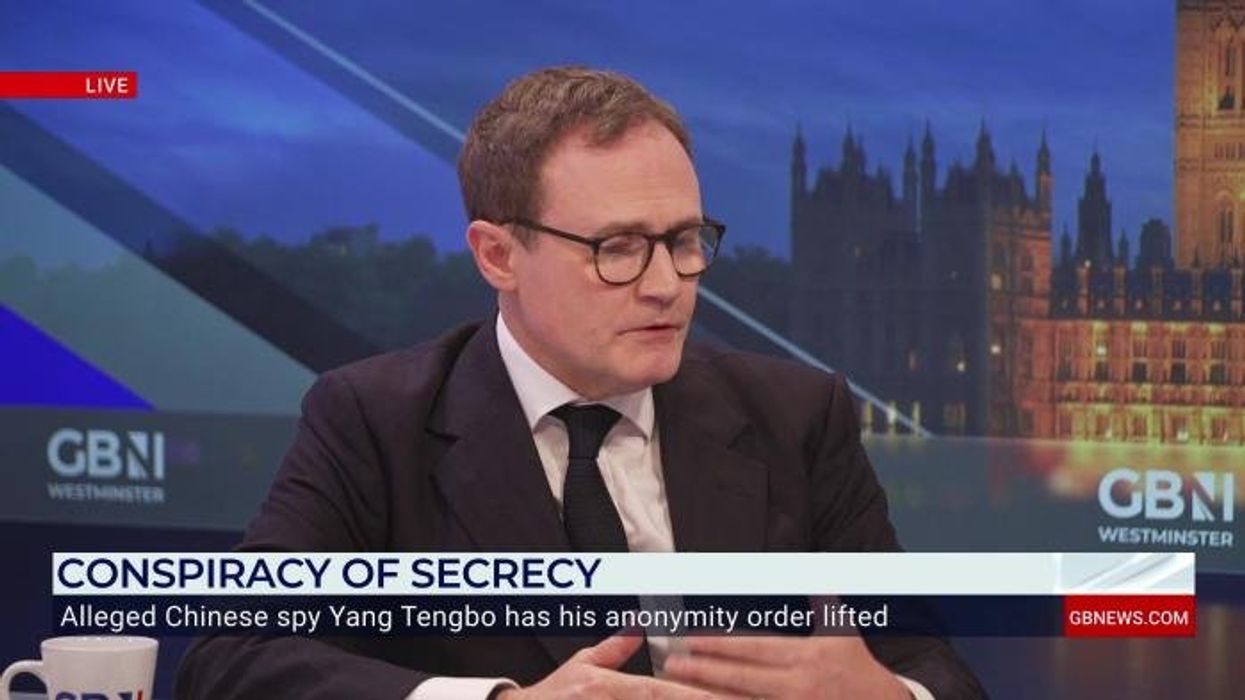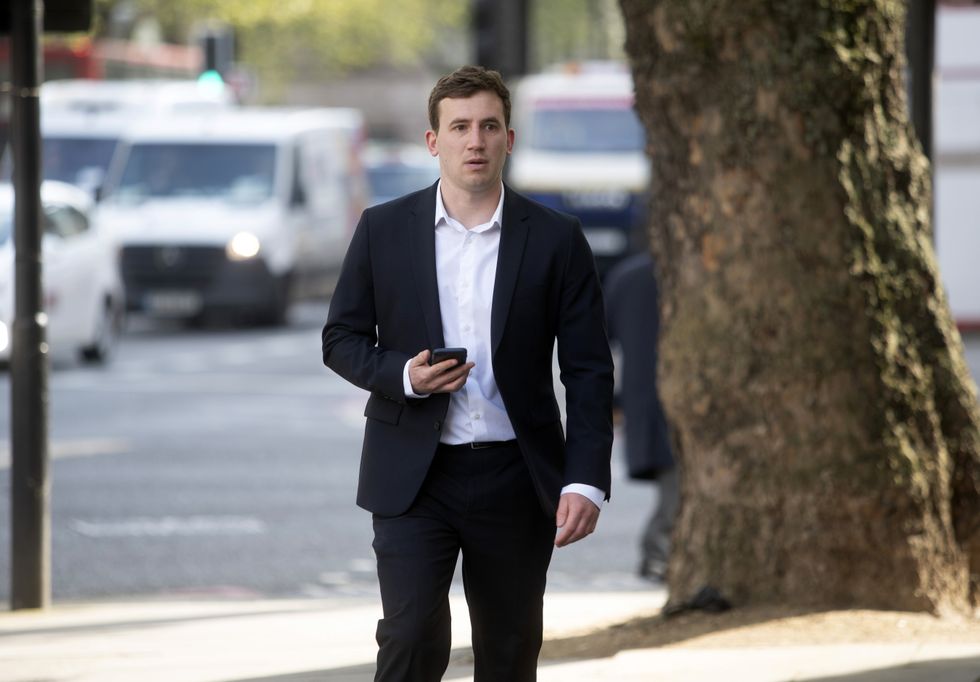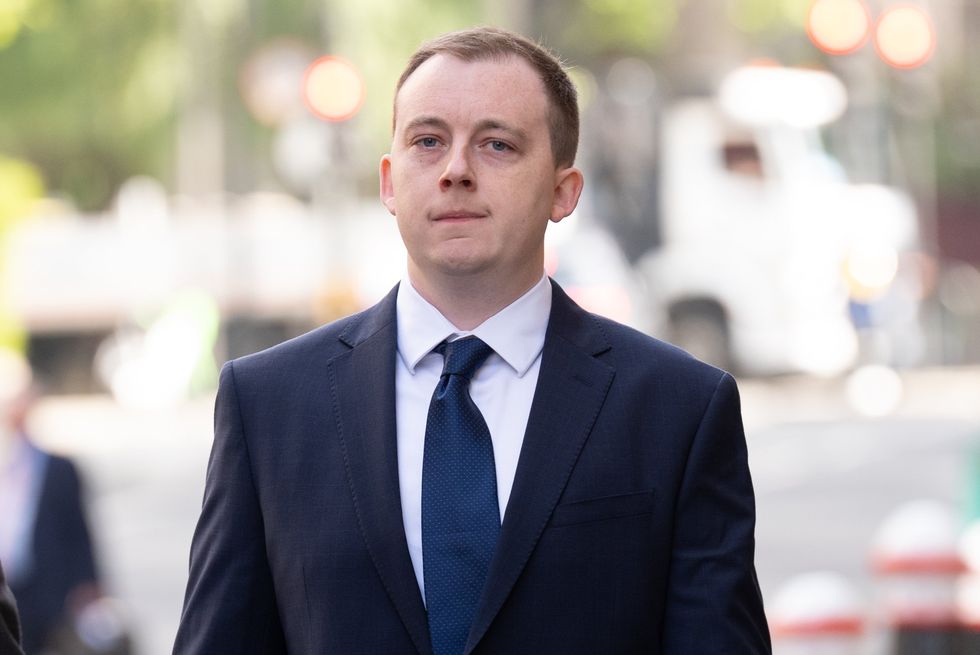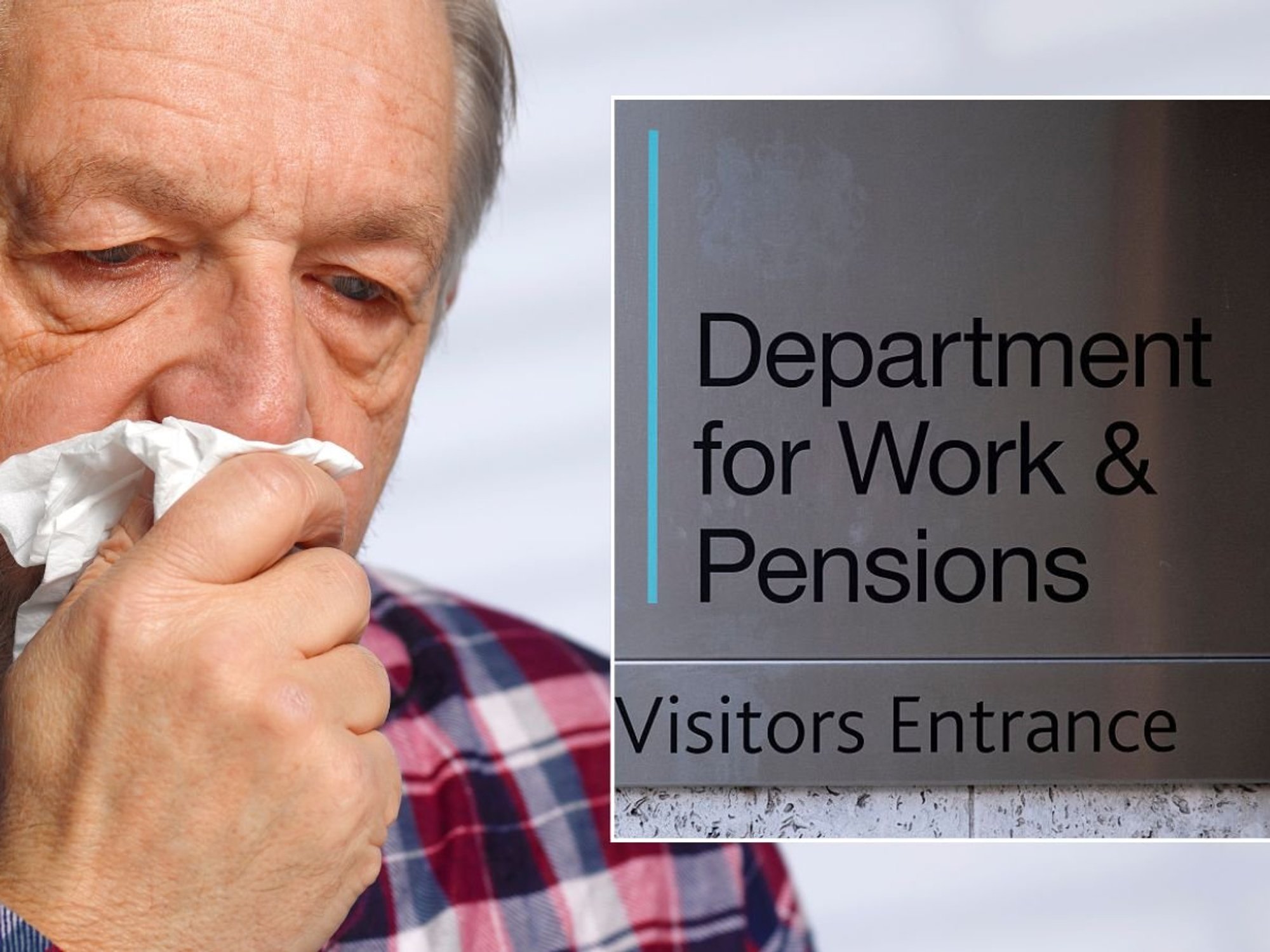Labour ‘secretly sabotaged’ trial of two alleged spies by refusing to brand China an 'enemy'

Tom Tugendhat on the risk of Chinese spying |
GB NEWS

When Labour took office, ministers informed prosecutors they would not permit China to be characterised as an enemy during legal proceedings
Don't Miss
Most Read
Trending on GB News
The Labour Government secretly blocked the prosecution of two men accused of espionage for China by withdrawing a crucial Government witness, according to revelations that have emerged.
The witness, a senior civil servant, had been prepared to provide testimony establishing that China constituted an "enemy" of Britain - a legal requirement for the prosecution to proceed under the Official Secrets Act 1911.
The decision led to prosecutors abandoning charges against Christopher Cash, 30, and Christopher Berry, 33, last month.
Both men had faced accusations of gathering and transmitting information to a high-ranking Chinese Communist Party official that could benefit a hostile state.
TRENDING
Stories
Videos
Your Say
The prosecution had received assurances from the previous Conservative administration that officials would provide evidence in court about China's status as a hostile nation.
Intelligence personnel were also scheduled to give testimony in closed sessions to maintain their anonymity.
However, when Labour took office, ministers informed prosecutors they would not permit China to be characterised as an enemy during legal proceedings.
This withdrawal of support occurred in early September, making it impossible for the Crown Prosecution Service to meet the statutory requirements for conviction.
LATEST DEVELOPMENTS:

The decision led to prosecutors abandoning charges against Christopher Cash
|PA
Dan Jarvis, the security minister, subsequently told Parliament the CPS had made an "independent" decision, claiming ministers should not speculate about the reasoning behind dropping the charges.
Parliamentary figures have expressed sharp criticism over the government's actions, with concerns raised about constitutional propriety.
Alicia Kearns, the Conservative MP who previously employed Mr Cash, stated that withdrawing a witness prompted "serious questions about constitutional impropriety".
She demanded transparency, saying: "In the public interest, the Government must disclose ministerial involvement, and come clean on whether any government witnesses were withdrawn."

The decision led to prosecutors abandoning charges against Christopher Berry
|PA
Ms Kearns added: "Starmer must answer: was it no longer in the public's interest to prosecute, or more likely he and his Labour Government don't have the mettle to defend the British people and our great democracy?"
Priti Patel, Shadow Foreign Secretary, described the witness withdrawal as "deeply alarming".
The two defendants had been charged with transmitting "politically sensitive information" regarding the China Research Group in Parliament and Government policy matters to a senior Chinese Communist Party politburo member via an intermediary.
Media reports have identified the recipient as Cai Qi, a close adviser to President Xi Jinping.

Priti Patel, Shadow Foreign Secretary, described the witness withdrawal as 'deeply alarming'
|PA
Sir Richard Moore, the departing MI6 chief, has characterised China as his agency's "single greatest priority", whilst the Intelligence and Security Committee has cautioned about Beijing's "prolific and aggressive" efforts to infiltrate British intelligence services.
Despite these security warnings, Labour has pursued enhanced diplomatic relations with Beijing, seeking economic investment opportunities.
A government spokesman said: "It is disappointing the individuals will not face trial, given the seriousness of the allegations.
"The decision not to proceed with prosecuting under the Official Secrets Act was made by the Crown Prosecution Service, entirely independently of Government.
"National security is the first duty of Government and we remain steadfast in upholding this responsibility.
"We will continue to use the full range of tools and powers to guard against malign activity.
"The introduction of the National Security Act has strengthened our ability to protect the UK, and to detect, disrupt, and deter any state activity seeking to undermine our democratic institutions."
More From GB News










